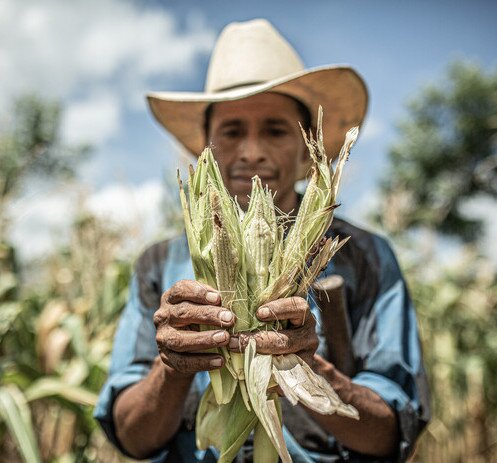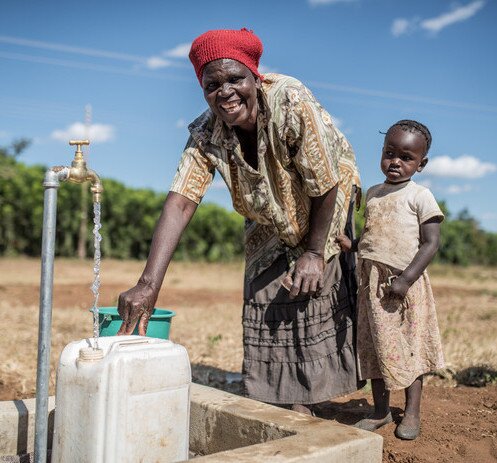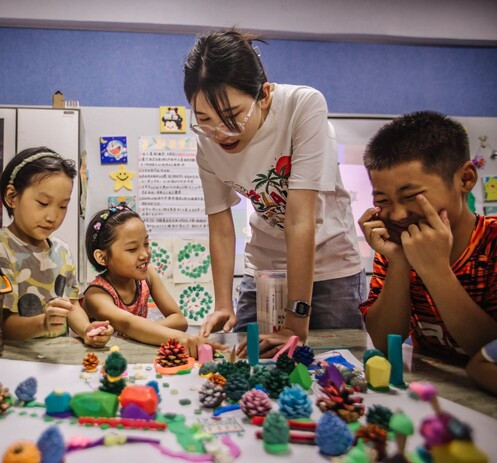In Hong Kong, about one in every two elderly persons live in poverty. (Photo: Tai Ngai Lung / Oxfam Hong Kong)
The Situation
According to the Hong Kong Poverty Situation Report for 2020, before policy intervention, 45 per cent of citizens aged 65 and above live in poverty – that’s about 583,600 elderly people. Oxfam is thus urging the government to improve retirement protection as soon as possible and scrap the MPF offsetting mechanism. As the largest employer, it should also take the lead in scrapping the mechanism to protect the retirement benefits of frontline outsourced workers.
The Four Poverties in Hong Kong
Policy advocacy
.jpg)
Oxfam's recent study found that as many as 85 per cent of the elderly cannot retire due to financial difficulties. Households with one working elderly person taking care of an unemployed partner are also most likely to be unable to make ends meet. Despite these challenges, many have no choice but to continue working.
In the 2022 Policy Address, the Chief Executive accepted Oxfam's advice to regularise and increase the carer allowance for the elderly and persons with disabilities, which will undoubtedly improve the lives of carers. However, since applicants cannot receive the CSSA and Old Age Living Allowance at the same time, many carers are ineligible for the scheme. The problem of poverty among the elderly in Hong Kong is getting worse. Oxfam urges the government to:
- Relax the eligibility for Living Allowance for Carers of Elderly Persons from Low Income Families to revoke the requirement that carers cannot receive support via the CSSA and Old Age Living Allowance, so that more people from low-income backgrounds can take care of the elderly and relieve the burden of the current shortage of residential places for the elderly;
- Relax the working hour requirements for the Working Family Allowance: As the elderly who work are mostly engaged in casual part-time jobs, the government should relax the working hour requirement for the Working Family Allowance so that older workers can also benefit;
- Scrap the MPF offsetting miechanism: Take the lead in scrapping the MPF offsetting mechanism, long service payment and severance payment, and scrap them as soon as possible;
- Review the effectiveness of the Employment Programme for the Elderly and Middle-aged: Increase the allowance to encourage organisations to employ staff for longer periods of time. The government should also step up efforts to promote the scheme, so that the elderly people who are not retired have more ways of finding work.
hOW WE'RE HELPING
When Neighbours Become Caregivers
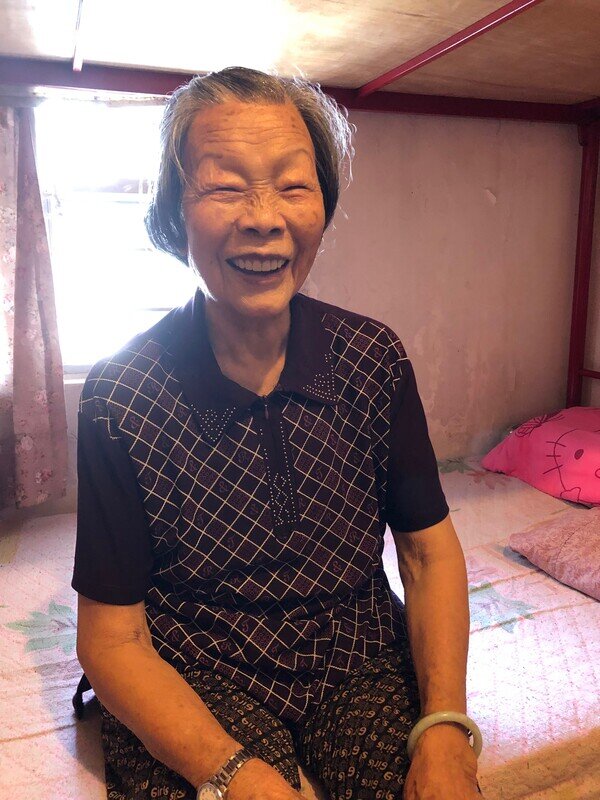
Photo: May Cheung/ Concerning Home Care Service Alliance
Living independently at home is what many seniors hope for. This, however, requires community care services, which is currently in serious shortage. With long waiting lists and little subsidisation from the government, it’s often hard for seniors to obtain these services. That’s why Oxfam supported the launch of Concerning Home Care Service Alliance’s ‘service matching’ scheme. Through it, volunteers from the community are recruited to accompany seniors to doctor’s visits, clean, cook, etc. Each time, seniors will pay HK$5, and carers will receive a stipend.
Yung (pictured), 88, spoke of the anxiety that comes with living alone with various chronic illnesses: ‘I don’t know how to get around, I can’t see well and I’ve poor memory. I don’t know how to get to the doctor’s clinic.’ On average, it takes 19 months for a waitlisted senior to obtain the subsidised home care services she needs, and 40 months to receive subsidised residential care services. In 2018 though, over 7,000 seniors passed away while waiting for these services/subsidies, highlighting just how serious the problem is.
Yung needs to visit her doctor regularly; the serious shortage of community carers, however, means she had to go alone. ‘Thankfully you guys are nice enough to bring me to the doctor, or else I wouldn’t know what to do!’ Yung said. For her, these services haven’t just made a practical difference, but have also brought her peace of mind: ‘I feel much better now that someone can help me out on the way and help listen for my name when I’m called at the clinic.’
Since the scheme’s services are based on the needs of seniors and their schedules, they’re more flexible than the government’s. It has also greatly improved seniors’ quality of life as carers even do things like accompany seniors to Cantonese opera shows. Since both the carers and seniors live in the same community, the services are much more immediate and can bring the community closer.
The scheme is currently being piloted in Kwai Chung and Kwai Shing East Estates. Aside from family caregivers, youths and younger seniors have also become carers through the scheme. Concerning Home Care Service Alliance hopes the government can take reference to this scheme to improve its services and hopes other NGOs can replicate the model so that more seniors can benefit.
the cost of labour
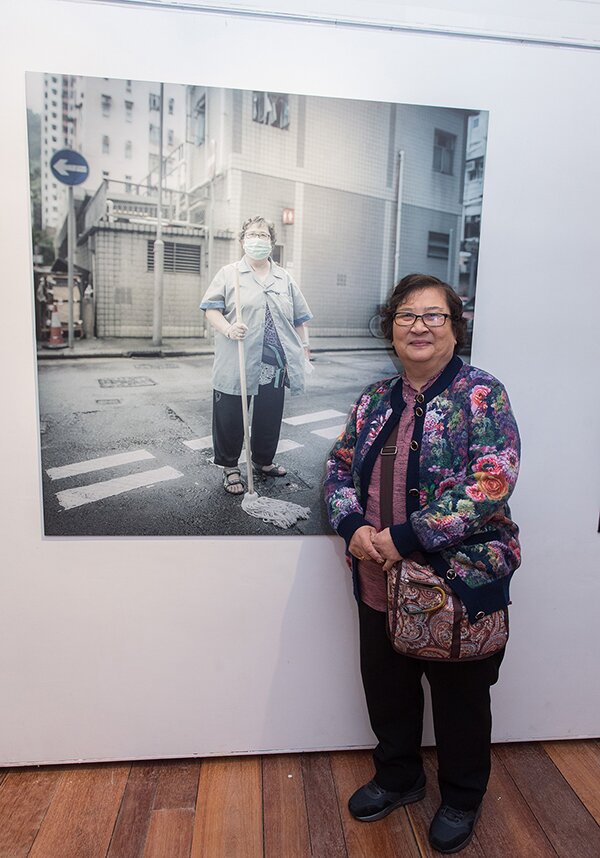
Photo: Derek Yung/ Oxfam
‘Some call me “toilet lady”, but I’d call myself the toilet “chief”. I respect my occupation; I do my best to keep the toilets clean. I respect each person who comes here, but does the government respect outsourced workers like me? How can the government just let contractors offset our MPF?’
----Leung Pik Hua, Frontline public toilet cleaner, 68 years old
Pik Hua has been doing this job for over a decade, and has worked in a slew of public toilets, from the one on Tai Hang Road to the one on Canal Road. Every few years, the government needs to find another outsourcing company, so Pik Hua has worked for more cleaning companies than she can count. She remembers one incident very vividly though: once, when her contract was not renewed, she was supposed to receive HK$20,000 in severance fees, but after the company offset it with her MPF, she only received HK$6,000.
In 2017 alone, a total of HK$4.3 billion was offset with employees’ MPF savings. With the continual offsetting of her retirement funds, Pik Hua does not even dare think about retirement. Instead, she continues to work 30 days a month, 10 hours a day, makes minimum wage and does not even make HK$10,000 a month.
Oxfam held ‘Poverty. Full-time.’ An art exhibition on working poverty in 2017 to help the public reflect on the value of labour and work through the art. Pik Hua shared her story, and Ducky Tse – curator of the exhibition and photographer – photographed her. When she saw her photo at the opening ceremony, she was very proud.

